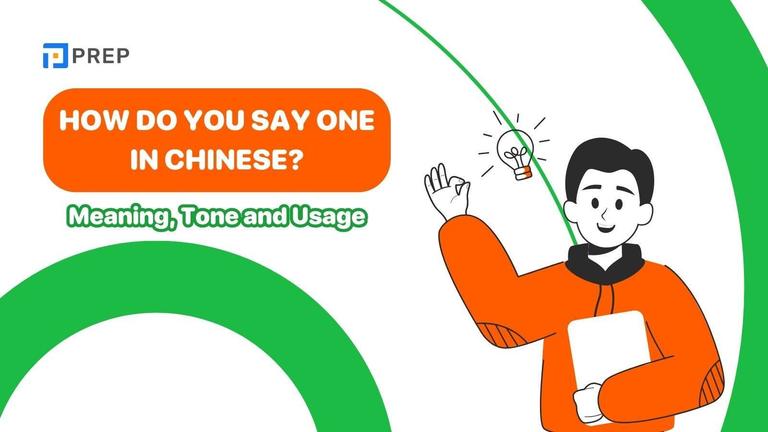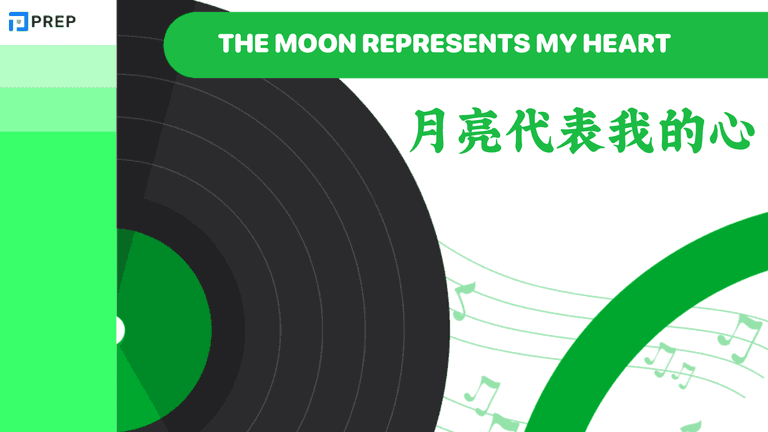Happy Dragon Boat Festival? A Guide to Greetings, Traditions, and the True Spirit of Duanwu
The Dragon Boat Festival, observed on the fifth day of the fifth lunar month, stands as one of East Asia's most significant traditional celebrations. This ancient festival combines memorial remembrance, protective rituals, and thrilling dragon boat competitions that have captivated communities for over 2,000 years.
While many people instinctively offer a "happy dragon boat festival" greeting, understanding the deeper cultural context reveals why traditional well-wishes focus on health and protection rather than simple happiness. This guide explores proper greetings, fascinating traditions, and the profound significance that makes this celebration unique.
- I. Why Say 'Health and Peace' Instead of 'Happy Dragon Boat Festival'
- II. Happy Dragon Boat Festival: What to Say and When
- III. Dragon Boat Festival Traditions: Racing, Food, and Protection Rituals
- IV. Common Dragon Boat Festival Questions Answered
- V. Understanding the True Meaning of Dragon Boat Festival
I. Why Say 'Health and Peace' Instead of 'Happy Dragon Boat Festival'
When you encounter friends celebrating the Dragon Boat Festival, your natural instinct might be to offer a cheerful "happy dragon boat festival" greeting. However, understanding the deeper cultural significance reveals why "Health and Peace" (Duānwǔ Ānkāng) carries far more meaning and respect than the conventional "happy" wishes we typically share during festive occasions.
The preference for wishing "health and peace" stems from the festival's profound memorial origins, centered around Qu Yuan, a revered poet and minister from ancient China's Warring States period. In 278 BCE, this loyal patriot made the ultimate sacrifice by drowning himself in the Miluo River to protest political corruption and his country's impending destruction.
This tragic act transformed what might have been a happy dragon boat festival into a day of remembrance. The villagers desperately raced their boats to save Qu Yuan and threw rice dumplings into the water to protect his body from fish. Their rescue attempt failed, but their actions created the festival's core traditions we observe today.
The festival's memorial nature extends beyond Qu Yuan's story into ancient Chinese beliefs about the fifth lunar month. Traditional culture regarded this period as the "Poisonous Month," when families focused on protection rather than celebration:
-
Disease and misfortune reached peak influence during this time
-
Evil spirits were believed to be most active and dangerous
-
Protective rituals took priority over joyful festivities
-
Health and safety wishes became the natural response to these perceived dangers
This historical context explains why wishing for "health and peace" remains the most culturally appropriate greeting, happy dragon boat festival honoring both Qu Yuan's sacrifice and the ancient protective spirit that defines the festival's true meaning.
II. Happy Dragon Boat Festival: What to Say and When
Understanding the cultural background helps you choose appropriate greetings that demonstrate respect for the festival's true spirit. Whether you're connecting with Chinese colleagues, friends, or participating in community celebrations, using the right words shows cultural awareness and genuine care for the occasion's significance.
|
Greeting (Characters & Pinyin) |
Literal Meaning |
When to Use It |
|
端午安康 (Duānwǔ Ānkāng) |
Health & Peace on Duanwu |
The most traditional and respectful choice for friends, family, and colleagues. |
|
端午吉祥 (Duānwǔ Jíxiáng) |
Auspicious Duanwu |
A positive and common alternative wish for good fortune. |
|
端午节快乐 (Duānwǔ Jié Kuàilè) |
Happy Dragon Boat Festival |
Common in modern/international settings; acceptable but less traditional. |
For social media posts or text messages, these ready-to-use templates help you share meaningful greetings for happy dragon boat festival: "Wishing you and your family good health and peace at this Dragon Boat Festival. Enjoy the zongzi! 端午安康!" Another option reads: "May this the dragon boat festival bring protection and prosperity to your home. 端午吉祥!" These messages work perfectly for both personal connections and professional relationships.
III. Dragon Boat Festival Traditions: Racing, Food, and Protection Rituals
1. Dragon Boat Racing: Origins and Modern Competition
Dragon boat racing captures the festival's most dynamic tradition, directly connecting modern celebrations to the ancient villagers who raced desperately to save Qu Yuan from the Miluo River. These magnificent vessels stretch up to 100 feet in length, decorated with elaborate dragon heads and tails, carrying teams of 20 paddlers working in perfect synchronization.
The racing experience combines several essential elements:
-
The drummer serves as the crew's heartbeat, setting pace and maintaining unity
-
Synchronized paddling creates mesmerizing displays of coordination and athletic prowess
-
Thunderous sounds of drums and splashing paddles embody the original rescue's urgency
-
Community spirit draws thousands of spectators to riverbanks worldwide
Modern dragon boat racing has evolved into a competitive international sport with standardized rules and world championships, yet maintains its commemorative purpose. Many races begin with ceremonies honoring Qu Yuan's memory, bridging past and present while fostering community bonds across cultures. Participants often exchange happy dragon boat festival greetings before competitions begin.
2. Zongzi Rice Dumplings: Regional Varieties and How to Eat Them
The tradition of eating zongzi during this happy dragon boat festival originates from villagers throwing these pyramid-shaped rice dumplings into the river to feed fish and protect Qu Yuan's body. These carefully wrapped parcels, bound in bamboo leaves and tied with colorful string, represent one of China's most ingenious portable food innovations.
Regional variations reflect local tastes and available ingredients:
Northern Zongzi (Sweet Style):
-
Red bean paste, jujube dates, or sweetened glutinous rice
-
Often dusted with sugar when served
-
Subtle sweetness appeals to dessert lovers
Southern Zongzi (Savory Style):
-
Marinated pork belly, salted egg yolks, shiitake mushrooms, Chinese sausage
-
Complete meals wrapped in convenient packages
-
Rich flavors from soy sauce, rice wine, and aromatic spices
How to Eat Zongzi: Remove the string carefully, peel away leaves to reveal compact rice interior, and enjoy the distinct textures and flavors. The rice should hold together firmly while yielding easily to gentle pressure. Families often share these treats while offering happy dragon boat festival wishes to one another.
3. Traditional Protection Methods: Herbs, Sachets, and Colored Threads
-
Hanging Mugwort and Calamus represents one of the festival's most widespread protective practices, as families gather these aromatic herbs and display them prominently on doors, windows, and entrances throughout their homes. The strong, distinctive scents of these plants naturally repel insects and rodents while symbolically driving away evil spirits and negative influences that ancient beliefs associated with the dangerous fifth month.
-
Perfumed Sachets serve as personal protective talismans, particularly for children who wear these small, beautifully embroidered bags filled with fragrant herbs and spices. Grandmothers and mothers traditionally create these intricate accessories using silk fabrics and colorful threads, filling them with combinations of realgar powder, aromatic herbs, and dried flowers that release pleasant scents while providing spiritual protection throughout the day.
-
Five-Colored Threads involve tying bright red, yellow, blue, white, and black strings around children's wrists, ankles, and necks to create visible barriers against illness and misfortune. Parents typically apply these threads early in the morning of the festival day, believing that the combined power of the five colors creates comprehensive protection that lasts until the strings naturally break or fall off.
IV. Common Dragon Boat Festival Questions Answered
With the core traditions understood, we can now explore essential questions that reveal the festival's significance and help deepen your appreciation for this remarkable celebration where people worldwide share happy dragon boat festival greetings.
1. What is 'realgar wine' and why is it part of the festival's history?
Realgar wine consists of traditional Chinese rice wine mixed with realgar powder, a naturally occurring arsenic mineral that ancient people believed possessed magical properties for neutralizing poison and repelling evil spirits. However, modern science confirms that realgar contains toxic arsenic compounds, making consumption extremely dangerous and potentially fatal, so this practice has been completely abandoned in favor of safer protective traditions.
2. What are the five 'poisonous pests' the festival aims to ward off?
Traditional beliefs identify five specific creatures that represent evil and misfortune during the dangerous fifth month: the centipede, snake, scorpion, toad, and spider. These creatures collectively symbolize the various forms of harm and illness that families sought to expel from their homes through protective rituals, herbal displays, and spiritual practices that remain central to happy dragon boat festival celebrations worldwide.
3. How do zongzi in Southeast Asia differ from those in mainland China?
Southeast Asian variations showcase remarkable creativity and local adaptation, particularly the stunning Nyonya Chang from Malaysia and Singapore, which features blue-colored glutinous rice tinted with butterfly pea flowers and filled with sweet-savory pork that creates a unique flavor profile. These regional adaptations demonstrate how Chinese emigrants adapted traditional recipes using local ingredients while maintaining the spiritual significance of the original festival foods, creating diverse ways to celebrate the happy dragon boat festival across different cultures.
V. Understanding the True Meaning of Dragon Boat Festival
The Dragon Boat Festival ultimately represents a powerful blend of historical remembrance and community well-being that transcends simple holiday festivities. By understanding Qu Yuan's sacrifice and the ancient protective traditions, you gain appreciation for a celebration that honors both individual courage and collective care for family and community health. Whether you choose traditional greetings or participate in dragon boat races and zongzi sharing, embracing the festival's deeper spirit of health, protection, and remembrance connects you to thousands of years of cultural wisdom and human resilience.

Hi I'm Chloe, and I am currently serving as an Product Content Administrator at Prep Education. With over five years of experience in independent online IELTS study and exam preparation, I am confident in my ability to support learners in achieving their highest possible scores.
Comment
Premium content
View allPersonalized roadmap
Most read












